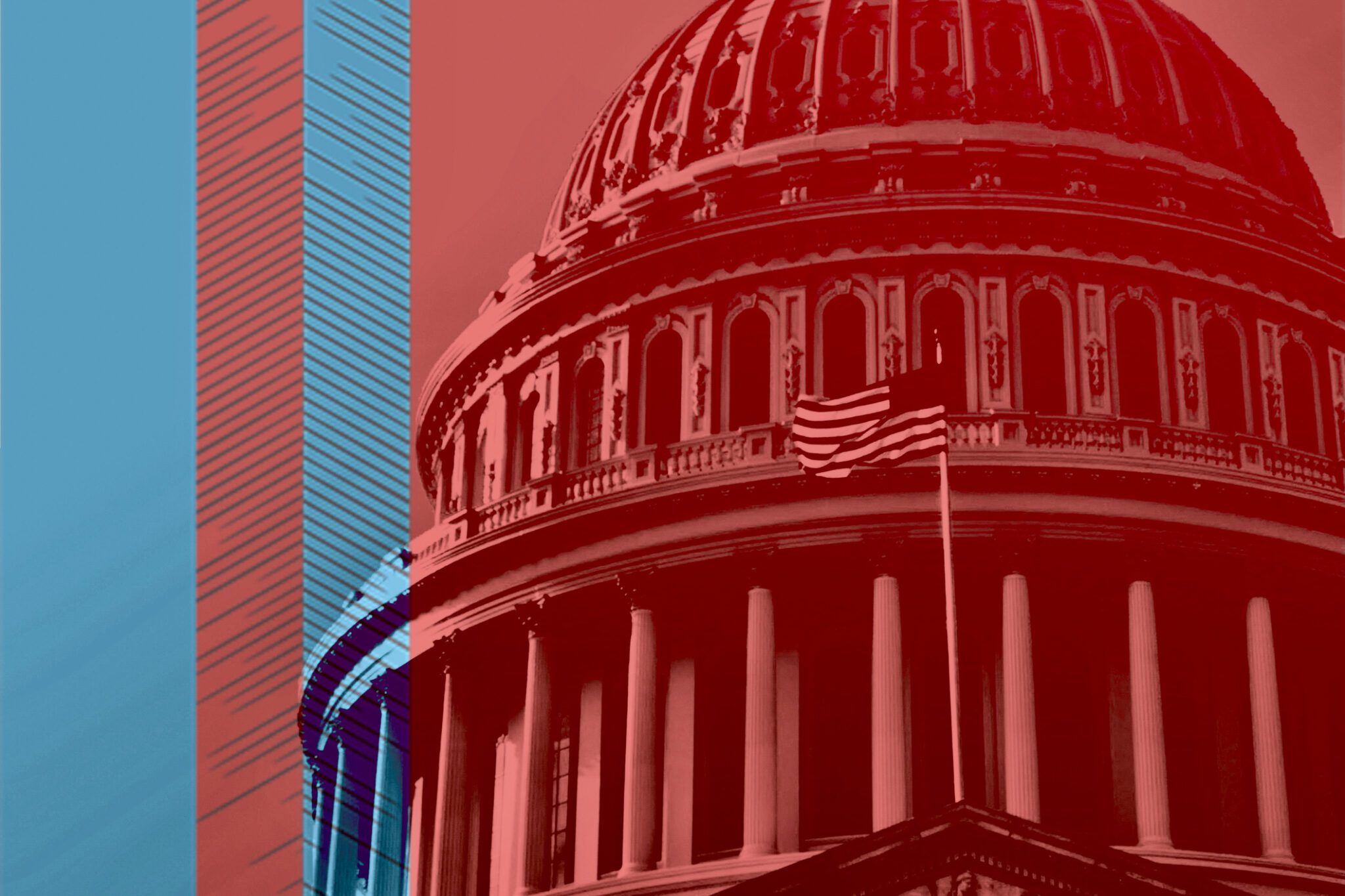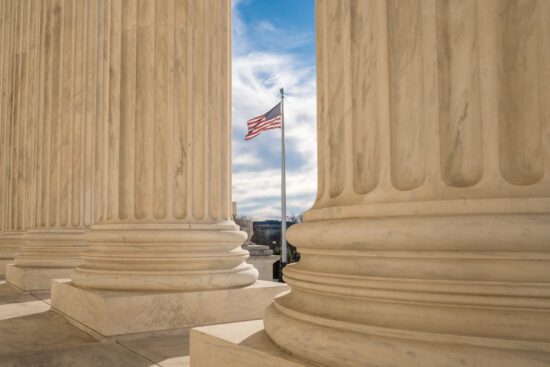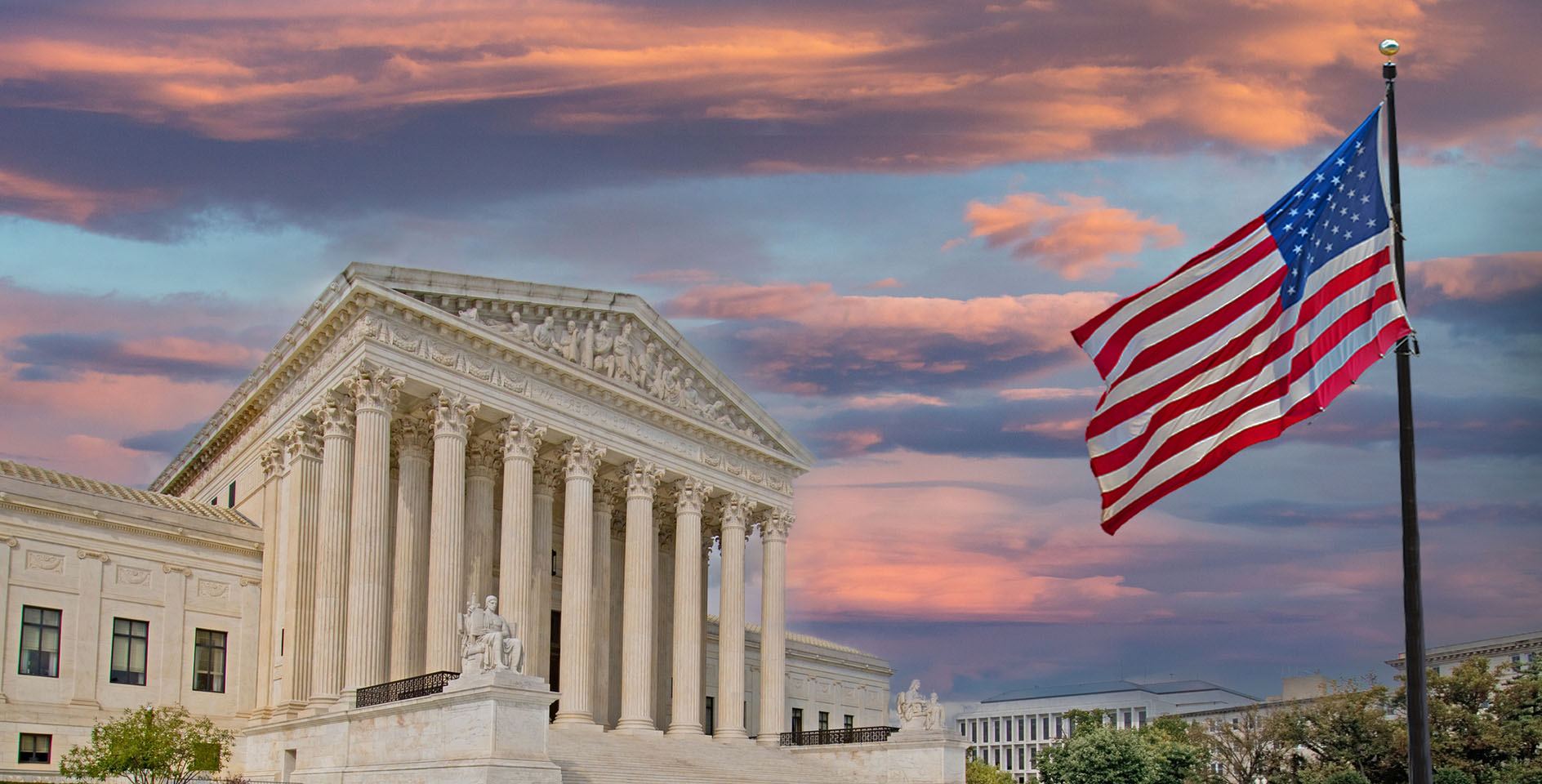On June 21, the U.S. Supreme Court ruled in a 6-3 decision that Maine’s “nonsectarian” requirement for otherwise generally available tuition assistance payments violates the Free Exercise Clause. Chief Justice John Roberts wrote the majority opinion, joined by Justices Thomas, Alito, Gorsuch, Kavanaugh, and Barrett. Justice Breyer filed a dissenting opinion, in which Justices Kagan and Sotomayor joined. (Justice Sotomayor joined as to all but Part I–B.) Justice Sotomayor filed a separate dissenting opinion.
This decision builds upon the encouraging precedents set in previously decided cases concerning religious freedom as some states—including Missouri and Montana—had sought to bar public funds from being used by religious institutions even though those public benefits were not otherwise restricted. In Trinity Lutheran Church of Columbia Inc. v. Comer, decided 7-2, the court upheld that the state cannot deny an institution a public benefit simply because of its religious status. The church was originally denied government funds to resurface its playground for preschoolers due to a provision in Missouri’s constitution that bars state funding for religious entities.
Similarly, the court issued a 5-4 ruling in Espinoza v. Montana Department of Revenue that prevents states from discriminating against religious schools and families. This case involved a generally available scholarship program in Montana designed to provide general support to students attending all types of private schools but was specifically not allowed to be used at religious schools.
As stated in the Carson opinion, “Trinity Lutheran and Espinoza held that the Free Exercise Clause forbids discrimination on the basis of religious status. But those decisions never suggested that use-based discrimination is any less offensive to the Free Exercise Clause. This case illustrates why.”
What is this case about?
This case arose out of the unique way that Maine provides free education to its 180,000 students. Every child in the United States is entitled to a free public education. According to the opinion, Maine is the most rural state in the Union, and there are areas where students don’t have easily accessible public education. Given that limitation, Maine offers its citizens a benefit: tuition assistance payments for any family whose school district does not provide a public secondary school.
In order for a school to be able to participate in this program—and receive government funding—the private school must meet the state’s minimum requirements, and it also must be “nonsectarian.” Functionally, this excludes a private religious school from participating in Maine’s public education program, because any school that provides religious instruction is considered “sectarian.”
Before 1981, parents could also direct the tuition assistance payments to religious schools. According to the ruling, “in the 1979– 1980 school year, over 200 Maine students opted to attend such schools through the tuition assistance program.” But in 1981, Maine “imposed a new requirement that any school receiving tuition assistance payments must be “a nonsectarian school in accordance with the First Amendment of the United States Constitution.”
In this case, several families sent, or desired to send their children to private schools which are accredited but do not meet the nonsectarian requirement because they are religiously affiliated. Bangor Christian Schools (BCS), one of the schools at the center of this case, was founded in 1970 as a ministry of a Baptist church.
The Carson family sent their daughter to BCS because of the school’s high academic standards and because the school’s Christian worldview aligns with their sincerely held religious beliefs. But because BCS didn’t qualify for tuition assistance payments, the Carsons paid the tuition for their daughter to attend BCS themselves.
Both BCS and Temple Academy (the religious school where Petitioners Troy and Angela Nelson sent their son) are accredited by the New England Association of Schools and Colleges (NEASC), and Maine’s Department of Education considers each school a “private school approved for attendance purposes” under the state’s compulsory attendance requirement. But the schools aren’t approved by the State of Maine, and the families did not qualify for tuition assistance. The families filed a lawsuit stating that Maine’s nonsectarian requirement violates the Constitution.
How did the ERLC engage this case?
The ERLC signed onto amicus briefs both at the petition for certiorari stage and when the case was before the Supreme Court on the merits.
The brief the ERLC joined on the merits argues that Maine’s public education system, especially in light of how Maine defended its system in the courts, does not merely exclude religious schools—it discriminates against them. The brief goes on to argue that the Supreme Court should adopt a per se rule against religious discrimination. In other words, where a state discriminates against religion, courts should immediately strike down the law rather than applying any kind of balancing test with state interests.
ERLC’s acting president Brent Leatherwood stated of this important win:
“Maine’s attempt to sidestep the Constitution was halted in its tracks today, and rightly so. The justices decision here accurately comports with the fundamental nature of religious liberty in our nation. The Court rightly decided that parents who choose to participate in a program like the one in Maine cannot have their constitutional rights abridged merely because they choose to send their children to a religious school. Similar attempts to curtail free expression have rightly been labeled ‘odious’ by the Court in previous decisions, and Maine’s program can now be added to that infamous list.”
Why does this decision matter?
In Espinoza v. Montana Department of Revenue, the Supreme Court held, “A State need not subsidize private education. But once a State decides to do so, it cannot disqualify some private schools solely because they are religious” 140 S. Ct. 2246, 2261 (2020).
The Carson case is important because it would close a loophole the First Circuit opened when upholding Maine’s exclusion of “sectarian” schools from its tuition assistance program. As the brief ERLC joined on petition for certiorari explains:
Nor can a state justify discrimination against religious schools with the ploy that the First Circuit permitted here: labeling its benefit as a “substitute” for, or “rough equivalent” of, a free “secular public education,” and then arguing that such an education must be secular, so religious schools can be excluded. That result and rationale conflict with this Court’s ruling in Espinoza and would allow easy evasion of Espinoza in the context of many government benefits. This Court must reject that rationale before other states attempt to capitalize on it.
Maine argued that it was not excluding religious schools from participating in a public education program because the public benefit offered was for a secular education. It is easy to see how states would be able to continue excluding religious organizations from public benefits simply by redefining the nature of the benefit offered.
Thankfully, today the court rejected this discriminatory maneuvering by officials in Maine. It reiterated the religious liberty afforded all citizens when exercising their faith in the course of their daily lives. Today’s holding is a substantial step forward in further enshrining the religious protections articulated in Trinity Lutheran and Espinoza.
Families and students should not lose access to the public square because of their religious beliefs. Denying state tuition aid to people of faith violates the Free Exercise clause of the First Amendment by undermining their individual choice and inhibiting the free exercise of their religion.
The First Amendment not only protects religious beliefs, but also the right to live out those beliefs — which includes giving and receiving educational instruction from religious institutions. Allowing parents to use state tuition aid to send their children to religious schools is not a funding or establishment of religion, nor is it an entanglement of church and state.









